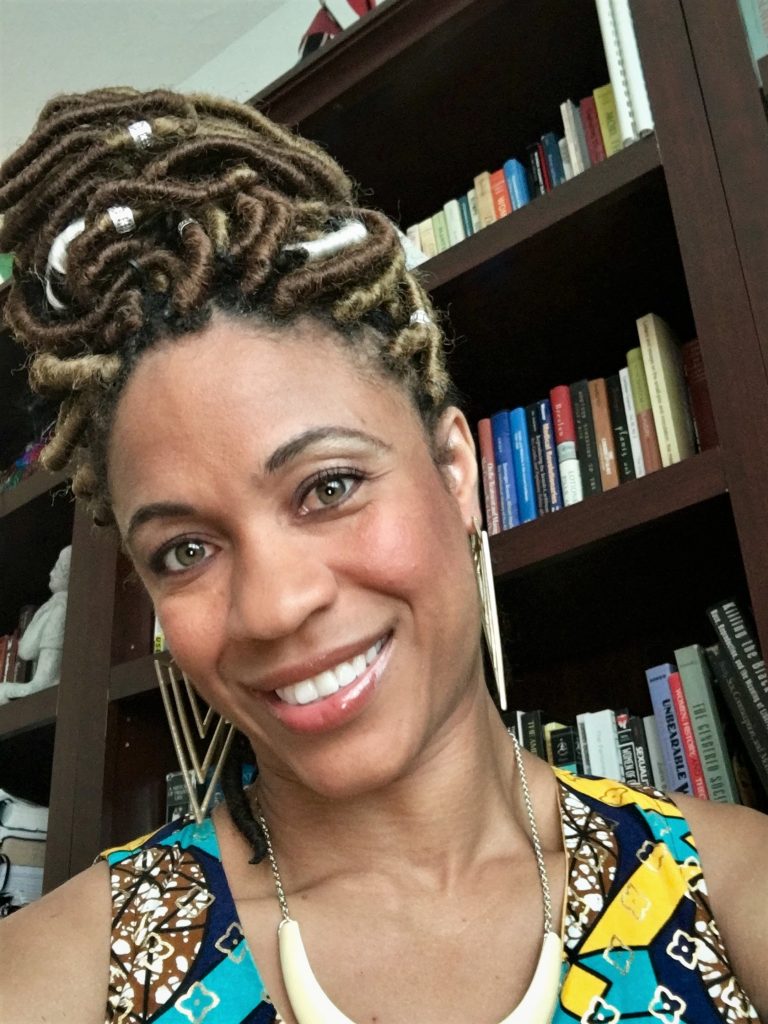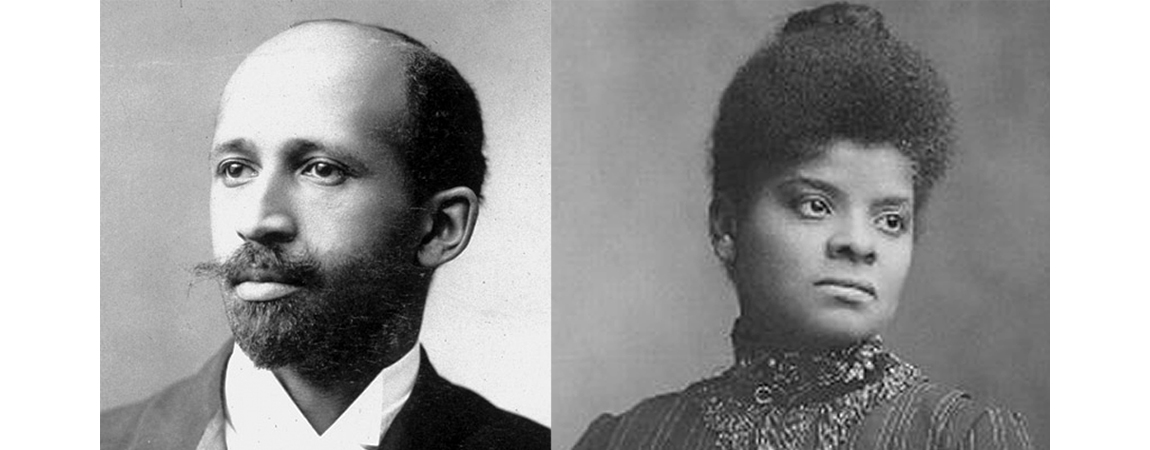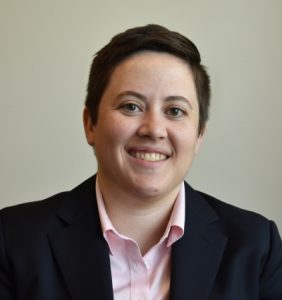2018 AAIHS Award Recipients
*The African American Intellectual History Society (AAIHS) recently held our third annual conference at Brandeis University from March 30-31st. We recognized the scholarship of the following scholars doing exciting and groundbreaking work in the field of Black intellectual History.
2018 Pauli Murray Book Prize
Named after lawyer, author, and women’s rights activist-intellectual Pauli Murray, the prize recognizes the best book concerning black intellectual history (broadly conceived) published between January 1, 2017 and December 31, 2017 by a member of AAIHS. The winner receives $1000, a featured week-long roundtable on the book in Black Perspectives, and a featured interview published on Black Perspectives. Five finalists were announced in March and we’re excited to recognize this year’s winner:
*Christopher M. Tinson, Radical Intellect: Liberator Magazine and Black Activism in the 1960s (University of North Carolina Press, 2017).
 Christopher M. Tinson is currently an Associate Professor of Africana Studies and History at Hampshire College. His research and teaching is interdisciplinary and focuses on histories of Africana radical traditions, U.S. Ethnic Studies, critical media studies, incarceration, and race and sports. His writings and reviews have been published in the The Black Scholar, The Feminist Wire, Radical Teacher, Equity & Excellence in Education, SOULS, and Counterpunch. His first book is Radical Intellect: Liberator Magazine and Black Activism in the 1960s, published by UNC Press. Professor Tinson is a highly sought-after speaker and mentor who has led professional development workshops and lectured at numerous college campuses, high schools, and carceral institutions throughout New England and the Tri-State area. He is an avid lover of basketball, used bookstores, and good coffee. Follow him on Twitter @Dahktin.
Christopher M. Tinson is currently an Associate Professor of Africana Studies and History at Hampshire College. His research and teaching is interdisciplinary and focuses on histories of Africana radical traditions, U.S. Ethnic Studies, critical media studies, incarceration, and race and sports. His writings and reviews have been published in the The Black Scholar, The Feminist Wire, Radical Teacher, Equity & Excellence in Education, SOULS, and Counterpunch. His first book is Radical Intellect: Liberator Magazine and Black Activism in the 1960s, published by UNC Press. Professor Tinson is a highly sought-after speaker and mentor who has led professional development workshops and lectured at numerous college campuses, high schools, and carceral institutions throughout New England and the Tri-State area. He is an avid lover of basketball, used bookstores, and good coffee. Follow him on Twitter @Dahktin.
2018 Maria Stewart Journal Article Prize
Named after the pioneering abolitionist and women’s rights activist-intellectual, the Maria Stewart Prize recognizes the best journal article concerning black intellectual history published in 2017. The winner receives $500, an award certificate, and a featured spot on Black Perspectives. We’re excited to recognize this year’s winner:
*Sasha Turner, “The Nameless and the Forgotten: Maternal Grief, Sacred Protection, and the Archive of Slavery,” Slavery and Abolition, 38: 1 (2017): 232-250.
 is the author of Contested Bodies: Pregnancy, Childrearing, and Slavery in Jamaica, which examines the struggles for control over biological reproduction and how central childbearing was to the organization of plantation work, the care of slaves, and the development of their culture. She completed a PhD at Cambridge University and is Associate Professor of History at Quinnipiac University where she teaches courses on the Caribbean and the African Diaspora, women, piracy, colonialism, and slavery. Her research on gender, race, and the body, and women, children, and emotions has been published in the Journal of Women’s History, Slavery and Abolition, and Caribbean Studies and has been supported by Rutgers University Race, Ethnicity, and Gender Studies Fellowship, Washington University in St. Louis African and African American Studies Fellowship, and the Richards Civil War Era Center and Africana Research Center Fellowship at the Pennsylvania State University. She is currently conducting research on her new book project, tentatively titled, Slavery, Emotions, and Gendered Power as a Fellow at Yale University’s Gilder Lehrman Center for the Study of Slavery, Resistance, and Abolition. Follow her on Twitter @drsashaturner.
is the author of Contested Bodies: Pregnancy, Childrearing, and Slavery in Jamaica, which examines the struggles for control over biological reproduction and how central childbearing was to the organization of plantation work, the care of slaves, and the development of their culture. She completed a PhD at Cambridge University and is Associate Professor of History at Quinnipiac University where she teaches courses on the Caribbean and the African Diaspora, women, piracy, colonialism, and slavery. Her research on gender, race, and the body, and women, children, and emotions has been published in the Journal of Women’s History, Slavery and Abolition, and Caribbean Studies and has been supported by Rutgers University Race, Ethnicity, and Gender Studies Fellowship, Washington University in St. Louis African and African American Studies Fellowship, and the Richards Civil War Era Center and Africana Research Center Fellowship at the Pennsylvania State University. She is currently conducting research on her new book project, tentatively titled, Slavery, Emotions, and Gendered Power as a Fellow at Yale University’s Gilder Lehrman Center for the Study of Slavery, Resistance, and Abolition. Follow her on Twitter @drsashaturner.
***
*Honorable Mention: Alec Hickmott, “Black Land, Black Capital: Rural Development in the Shadows of the Sunbelt South, 1969–1976,” Journal of African American History, 101: 4 (2017): 504-534.
Richard D. Benson II is currently an Assistant Professor in the Education Department at Spelman College in Atlanta, Georgia. He received a C.L.R. James Research fellowship to support the completion of his book manuscript entitled, Funding the Revolution: Black Power, White Church Money, and the Financial Architects of Black Radicalism 1966-1976.
Naomi Extra is a freelance writer, poet, and doctoral candidate in American Studies at Rutgers University-Newark. She received a C.L.R. James Research Fellowship to support the completion of her dissertation, which explores the themes of agency and pleasure in the lives of black women and girls.
2018 Du Bois-Wells Graduate Student Paper Prize
This prize, named for W.E.B. Du Bois and Ida B. Wells, honors the most outstanding paper written by a graduate student at the annual conference. In addition to a monetary prize of $150, the winner receives a one-year membership to the AAIHS and a featured spot on Black Perspectives. We’re excited to recognize this year’s winner:
Natalie Shibley, “‘Not fit material for anyone to print’: Race, Respectability, and Military Homosexuality Investigations, 1945-1950”
Natalie Shibley is a joint-degree Ph.D. candidate in Africana Studies and History at the University of Pennsylvania. She graduated cum laude from Columbia University with a B.A. in African-American Studies and History and holds an M.A. in Africana Studies and a Certificate in College and University Teaching from the University of Pennsylvania. Her research has been supported by the U.S. Army Military History Institute, Cornell University Library, and the Gender, Sexuality & Women’s Studies Program at Penn, among other sources. Her dissertation, “Sexual Contagion: The Politics of Sexuality and Public Health in the U.S. Military, 1941-1993,” examines the intersection of race, gender, and U.S. military policy regarding sexually transmitted diseases and homosexuality. Her conference paper discussed African Americans involved in military homosexuality investigations in the 1940s and early 1950s, focusing primarily on members of the Women’s Army Corps. It considers the perspectives of both suspects and informants in these investigations, as well as the views of higher-ranking military officials. The paper also addresses how many African American service members thought homosexuality could be identified and what they believed the risks of homosexuality could be, to gay people themselves and to military units, in ways that often mirrored broader American beliefs about homosexuality but other times included racially specific concerns about respectability and representation. It shows how some black service members accused of homosexuality experienced and challenged intersecting forms of discrimination.
This year, we provided travel grants of $250 to graduate students and contingent faculty to defray travel costs to the annual conference. We’re excited to recognize this year’s recipients:
- Korka Sall (Umass Amherst)
- Christina Davidson (Duke University)
- Candace A. Spencer (University of Florida)
- Ashley Daniels (Howard University)



